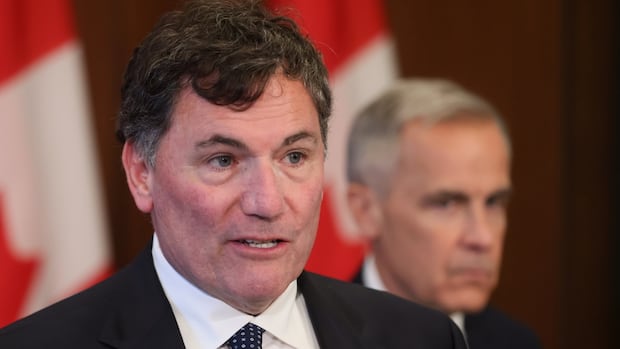In what could mark a pivotal moment for Canada-U.S. economic relations, Dominic LeBlanc, Minister of Public Safety, revealed that Liberal campaign co-chair Mark Carney is expected to engage in direct talks with president-elect Donald Trump in the coming days. Their conversation will undoubtedly center on Trump’s campaign promise to impose sweeping 35 percent tariffs on Canadian goods—a move that threatens to upend decades of integrated trade between the neighboring nations.
“I anticipate that over the next couple of days, Mark Carney will have a conversation with president-elect Trump,” LeBlanc told reporters Tuesday on Parliament Hill. The minister emphasized that Carney’s exceptional economic credentials position him ideally for these critical discussions, noting that “there’s nobody better than Mark Carney to have these economic conversations.”
Carney, former governor of both the Bank of Canada and the Bank of England, brings substantial international financial expertise to the table at a precarious moment for Canadian business interests. His appointment as campaign co-chair has been interpreted by many observers as a strategic move by Prime Minister Justin Trudeau to leverage Carney’s global relationships during this period of economic uncertainty.
The stakes couldn’t be higher for Canadian politics and commerce. Trump’s proposed blanket tariff would represent the most significant disruption to cross-border trade since the implementation of the original Canada-U.S. Free Trade Agreement in 1989. Economic analyses suggest such tariffs could trigger price increases for American consumers while simultaneously devastating Canadian export industries that rely heavily on U.S. markets.
When pressed about Canada’s contingency plans should Trump follow through on his tariff threats, LeBlanc remained measured but resolute. “The government has been preparing for some time for different scenarios,” he stated, indicating that Ottawa has been developing strategic responses since before the U.S. election concluded.
The Canadian government appears to be pursuing a two-track approach: preparing defensive economic measures while simultaneously attempting to establish direct channels of communication with the incoming Trump administration. Finance Minister Chrystia Freeland has already confirmed that Canadian officials have opened preliminary discussions with Trump’s transition team.
Industry experts point out that Canada’s extensive integration with U.S. supply chains provides some natural protection against extreme trade measures. “The reality is that many American manufacturers depend on Canadian inputs,” notes Dr. Eleanor Thompson, trade economist at the University of Toronto. “Imposing steep tariffs would hurt both economies, which gives us some negotiating leverage.”
For communities across Canada, particularly in manufacturing hubs like Windsor, Hamilton, and parts of Quebec, the outcome of these discussions will have immediate real-world implications. The auto sector alone, which regularly ships components back and forth across the border multiple times during production, could face existential challenges under a 35 percent tariff regime.
The Trudeau government faces additional complexity in its approach to Trump given the president-elect’s mercurial negotiating style and tendency to personalize international relationships. “Personal diplomacy will matter enormously,” explains former Canadian diplomat Richard Kohler. “Having someone like Carney, who speaks Trump’s language of business and finance, could prove invaluable.”
As world news outlets monitor these developments, Canadians find themselves in familiar territory—watching anxiously as their economic future becomes entangled in American political dynamics. The planned discussion between Carney and Trump represents just the opening move in what promises to be a challenging chess match of international trade diplomacy.
With Canada exporting approximately $476 billion in goods to the United States annually, representing roughly 75 percent of all Canadian exports, the fundamental question remains: can Canada effectively persuade the Trump administration that punitive tariffs would ultimately harm American interests, or must we prepare for a new, more protectionist era in North American trade relations?









